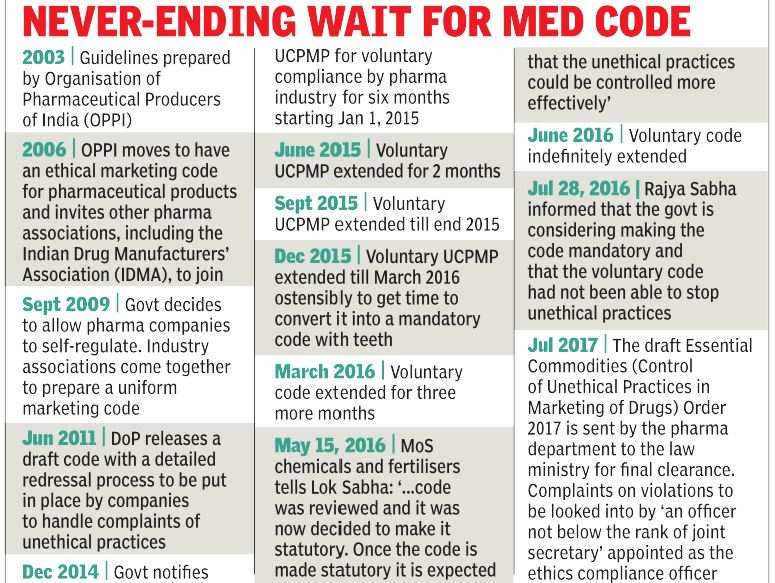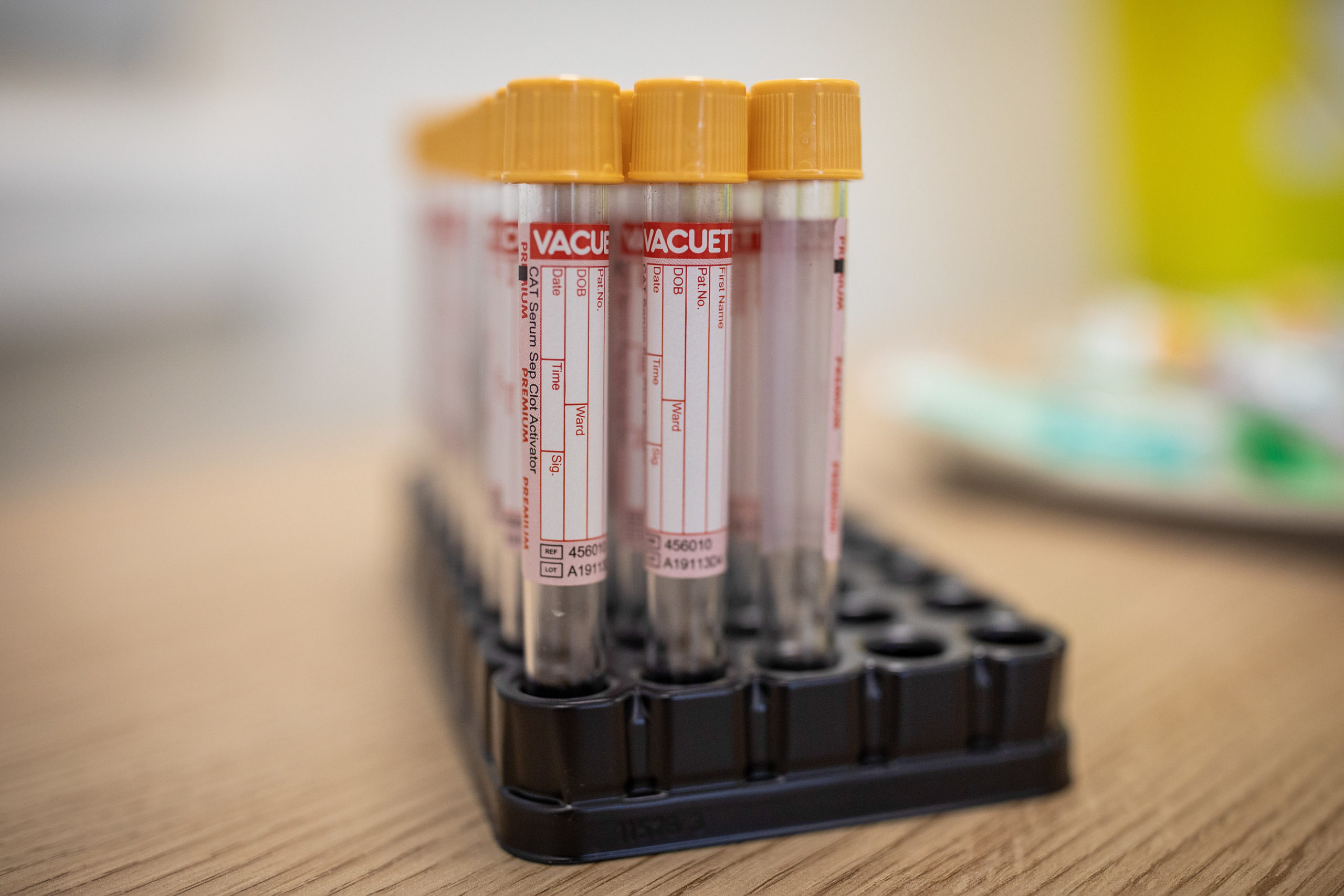More than four years after the government told Parliament that it had decided to make the uniform code for pharmaceutical marketing practices mandatory because the voluntary code hadn't worked, the department of pharmaceutical (DoP) is still holding meetings with the industry on implementation of the voluntary code. The code aims to end unethical practices like companies bribing doctors in cash or kind to prescribe their medicines.
On Friday, the secretary held a meeting with industry associations. The minutes of the last meeting on February 17 recorded that he "showed his displeasure at the status of implementation of UCPMP". None of these meetings included civil society groups representing patient interests.
"If groups such as citizens or consumers and civil society are not engaged, how can it be ensured that there is no nexus between the state and businesses, a concern that was acknowledged in government's own draft action plan on business and human rights?" asked Pradeep Narayanan, director of Partners for Change, an organization working on business and human rights which had done a study on UCPMP implementation. "In the study, we had found that the ministry kept issuing notifications extending the voluntary code even though companies did not honour the code, which indicated a wider nexus. That's why other stakeholders such as citizens and civil society need to be invited to such consultations," Narayanan said.
In December 2014, the DoP had notified the UCPMP to be complied with by the pharma industry on a voluntary basis for six months startingRead More – Source
More than four years after the government told Parliament that it had decided to make the uniform code for pharmaceutical marketing practices mandatory because the voluntary code hadn't worked, the department of pharmaceutical (DoP) is still holding meetings with the industry on implementation of the voluntary code. The code aims to end unethical practices like companies bribing doctors in cash or kind to prescribe their medicines.
On Friday, the secretary held a meeting with industry associations. The minutes of the last meeting on February 17 recorded that he "showed his displeasure at the status of implementation of UCPMP". None of these meetings included civil society groups representing patient interests.
"If groups such as citizens or consumers and civil society are not engaged, how can it be ensured that there is no nexus between the state and businesses, a concern that was acknowledged in government's own draft action plan on business and human rights?" asked Pradeep Narayanan, director of Partners for Change, an organization working on business and human rights which had done a study on UCPMP implementation. "In the study, we had found that the ministry kept issuing notifications extending the voluntary code even though companies did not honour the code, which indicated a wider nexus. That's why other stakeholders such as citizens and civil society need to be invited to such consultations," Narayanan said.
In December 2014, the DoP had notified the UCPMP to be complied with by the pharma industry on a voluntary basis for six months startingRead More – Source










